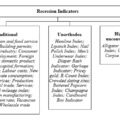Following Mario Monti’s appointment as Italy’s Prime Minister in November 2011, President of the Republic Giorgio Napolitano argued that Italy’s relations with Russia had to be “de-personalized”. He was clearly referring to the close personal relationship between former Prime Minister Silvio Berlusconi and Russian President Vladimir Putin that had been an influential factor in Italy-Russia economic relations, both in the public and in the private sector. Despite Napolitano’s statement, few analysts expected a weakening of the ties between Italy and Russia. In fact, Napolitano himself specified that the de-personalization of the relationship should not result in its deterioration, which - he argued - would constitute a mistake and damage Italy’s interests.
A quick glance at the history of Italy–Russia relations is sufficient to understand that the strategic partnership between the two countries dates from much earlier than Berlusconi’s cabinets and proved also to be very strong even when Berlusconi was ousted from power – for instance during Romano Prodi’s interregnum in 2006-2008. To mention just two examples, the Italian energy company ENI accessed the Russian market in 1969 and was one of the first Western companies to conclude an energy supply contract with the Soviet Union. The Italian automobile manufacturer FIAT began its production of cars in the USSR in 1970, when its factory in Togliattigrad delivered the first Zigulis. The FIAT Zigulis would become the symbol of the ‘car age’ in the USSR. The economic cooperation of those pioneering years has extended to many other sectors, including aeronautics, industrial machinery, telecommunications, credit insurance and recently also to the development of infrastructure for the 2014 Olympic games in Sochi. Energy cooperation continues to play a leading role, as illustrated by the fact that ENI has become the main international partner of Gazprom, Russia’s state-owned energy giant. In November 2006, during the last Prodi government, ENI and Gazprom signed a strategic agreement that initiated a strong, long-term alliance. In particular, they agreed on extending sales of Russian gas to Italy until 2035 and identified major projects that will be jointly owned.
The Blue Stream pipeline and the South Stream pipeline project stand out as examples of the ENI-Gazprom partnership. Blue Stream, connecting Russia and Turkey via an offshore route in the Black Sea, was completed in 2003. ENI played a key role in the project, as its subsidiary SAIPEM built the offshore part of the pipeline, thereby compensating for Gazprom’s lack of capacity in offshore technology. Most likely the Italian energy company will also build the offshore part of the South Stream pipeline, an ambitious project that should bring Russian gas to the European Union through the Black Sea and the Balkans by 2015.
In early March 2012, ENI and Gazprom discussed actions for the expedited implementation of the South Stream project. Meanwhile, no progress has been made with plans for the EU- and US-supported Nabucco pipeline, which aims at diversifying EU energy imports away from Russia and is seen by many analysts as a competitor to South Stream. As leaked US government cables have revealed, the strategic partnership between ENI and Gazprom has been so successful that Washington has become deeply concerned about its impact on Europe’s increasing dependence on Russian gas. The EU-Russia energy relationship however is best described as one of mutual dependence, and the energy deals between Italy and Russia reflect this. Russia is respectively Italy’s first gas and second oil supplier. At the same time, the Italian market is very important for Russian energy exports. Gazprom is dependent on cooperation with ENI for the implementation of its offshore projects and for access to lucrative energy markets such as Libya’s. Furthermore, in order to offset the costs of projects such as South Stream and make them lucrative, Gazprom needs Italy’s and its other European partners’ commitment to buy the gas that will be channeled through the pipeline.
Russia has an interest in cooperating with the European Union in many other sectors too, particularly those that are crucial for its technological modernization. Partnerships with Italian companies play a key role also in this respect. In the automobile sector, IVECO produces 50 percent of its armored vehicles in Russia. In December 2010 it reached an agreement to produce 2,500 Lince military vehicles on Russian soil and sell a share of them to the Russian army. Further, in early March 2012, FIAT and the Russian bank Sberbank signed a letter of intent for the creation of a joint venture that will produce cars and light commercial vehicles starting in 2013.
The Russian transport sector has witnessed the increasing involvement of the Italian conglomerate Finmeccanica. In November 2010 Finmeccanica signed a memorandum of understanding for a joint venture with Russian Railways to develop automation, signaling, telecommunication and safety technology for the Russian rail network. Thanks to this joint venture, Finmeccanica may also be able to obtain strategic access to the networks of other post-Soviet and Baltic states (where railways operate in similar extreme climatic conditions) when they decide to upgrade their railroad traffic. From 2007 on, Finmeccanica has participated in the international marketing of the new Russian regional jet Sukhoi Superjet 100, thanks to the establishment of a Venice-based joint venture between its member company Alenia Aermacchi and the Sukhoi Holding. Also in the field of aeronautics, Finmeccanica became involved with Russia for the construction of helicopters. In June 2011, Agusta Westland, a company of the Finmeccanica group, signed a joint venture deal with Russian Helicopters for assembling AW139 civil helicopters in Tomilino, near Moscow.
The cooperation between Italian and Russian businesses has recently expanded to new areas, most notably the credit insurance sector. In February 2012 the Italian export credit agency SACE, entirely controlled by the Italian Ministry of Economy and Finance, won an advisory contract to train the personnel of EXIAR, the Russian agency for export credit and investment insurance. The cooperation between SACE and EXIAR will be strengthened further by a memorandum of understanding that aims at boosting commercial and investment opportunities in the respective national markets and in the Commonwealth of Independent States. The recent developments in the credit insurance sector, together with Russia’s expected accession to the World Trade Organization (WTO), will probably lead to an increase in Italy-Russia bilateral trade and investments in the each other’s markets. Russia’s WTO membership, which will take effect after the Duma ratifies the accession agreement (probably in the summer of 2012), will remove an important hurdle for the country’s external economic relations. It is likely that the Italian presence on the Russian market, particular in the form of small and medium-sized enterprises, would increase further if the visa and work permit regimes were loosened or abolished. Italian investment would be boosted also by a more reliable legal system and more transparent rules on customs duties in Russia.
In the coming months, Italy-Russia economic relations will continue to develop positively and play an important role also in the broader European context. The construction of the South Stream pipeline will be of key importance for European energy security. Although it will not decrease Europe’s energy dependence on Russian gas, it will create an alternative supply route that will bypass Ukraine and contribute to shelter EU countries from potential new energy crises between Russia and Ukraine. Cooperation with Italian companies will also help Russian enterprises to become more active on foreign markets and cope with the increased competition that will result from Russia’s adoption of WTO trade rules.
Marco Siddi







